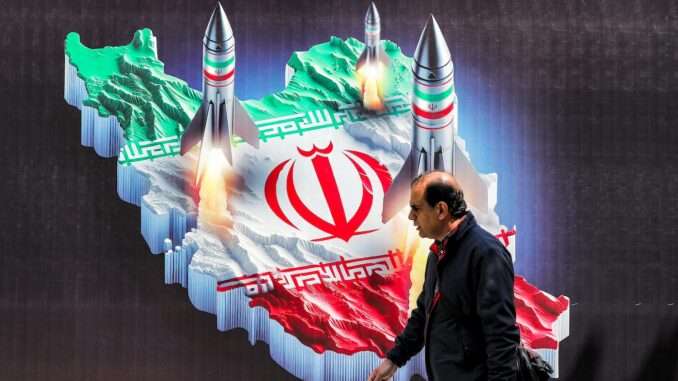
Ahmad Saber
The prospect of Israel launching a preemptive strike against Iran’s nuclear and military capabilities has long been debated, with some Israeli officials openly discussing this possibility today at “Times of Israel“. However, a closer examination reveals that Israel faces a complex set of constraints that make such an operation extremely risky and unlikely to succeed.
At the heart of the challenge is Israel’s limited capacity to both absorb the inevitable retaliatory strikes from Iran and execute a large-scale, coordinated military operation in response. This vulnerability is further exacerbated by the potential for Russia to provide Iran with additional support, creating an even more daunting strategic environment for Israel.
Iran’s Retaliatory Capabilities
Iran has meticulously built up an arsenal of ballistic missiles, cruise missiles, and other advanced weapons systems over the years. These capabilities, coupled with Iran’s network of regional proxies like Hezbollah, pose a serious threat that could overwhelm Israel’s defenses. A saturation attack from Iran’s missiles and proxies could inflict significant damage on Israel’s military and civilian infrastructure, undermining Israel’s ability to sustain a prolonged conflict.
The Russia Factor: A Game-Changer?
The potential involvement of Russia further complicates the calculus for Israel. Russia has longstanding ties with Iran and has provided it with advanced weapons systems, intelligence support, and other forms of assistance in the past. If Russia were to actively support Iran in the event of an Israeli strike, it could significantly bolster Iran’s defensive and offensive capabilities, potentially neutralizing some of Israel’s key military advantages.
Reinforcing this dynamic, Russian Defense Minister Sergei Shoigu, a senior ally of President Vladimir Putin, arrived in Tehran today for talks with Iranian leaders. Shoigu is scheduled to meet with the Iranian president, the secretary of the Supreme National Security Council, and the head of the General Staff. This visit suggests that Russia may be seeking to play a more active role in the region and potentially provide additional support to Iran, further complicating the geopolitical dynamics.
Russia’s involvement could take various forms, from sharing intelligence and providing technical assistance to directly intervening with its own military assets. This could include deploying air defense systems, supplying advanced missiles, or even conducting joint military operations with Iran. Such a scenario would put immense strain on Israel’s ability to achieve its strategic objectives.
Logistical and Operational Challenges
Even if Israel could withstand the initial retaliatory strikes, executing a successful large-scale preemptive operation would be an enormous logistical challenge. Targeting Iran’s nuclear and military sites, which are dispersed throughout the country and heavily fortified, would require a complex, coordinated air campaign involving hundreds of sorties. However, Israel’s relatively small air force and limited long-range strike capabilities may not be sufficient to sustain such an operation over an extended period.
Weighing the Costs and Risks
Ultimately, while Occupying country military have capabilities, the combination of Iran’s retaliatory threat, the potential for Russian intervention, and the inherent logistical challenges make a preemptive strike a highly risky and potentially disastrous proposition. The costs and consequences of such an operation failing catastrophically are simply too high for Israel’s leaders to seriously contemplate it as a viable option.
This assessment is supported by historical precedent. In 2012, when there was significant speculation and debate within the Israeli government about the possibility of launching a preemptive strike against Iran’s nuclear program, the Israeli leadership ultimately decided against such an operation after extensive deliberations and analysis.
Key factors that influenced this decision included concerns about Iran’s robust retaliatory capabilities, the logistical and operational challenges of sustaining a complex air campaign, and the potential for widespread international backlash and diplomatic isolation. The 2012 case study demonstrates that even when faced with a perceived existential threat, the Israeli leadership was deterred from launching a preemptive strike due to the significant risks and constraints involved.
Israel’s calculus is further complicated by the potential international backlash and diplomatic fallout that could arise from a unilateral preemptive strike, which could isolate Israel and undermine its strategic positioning. I assume that Careful consideration of these multifaceted constraints and risks will force Israel to effectively take a preemptive strike on Iran off the table, at least for the foreseeable future.






Be the first to comment